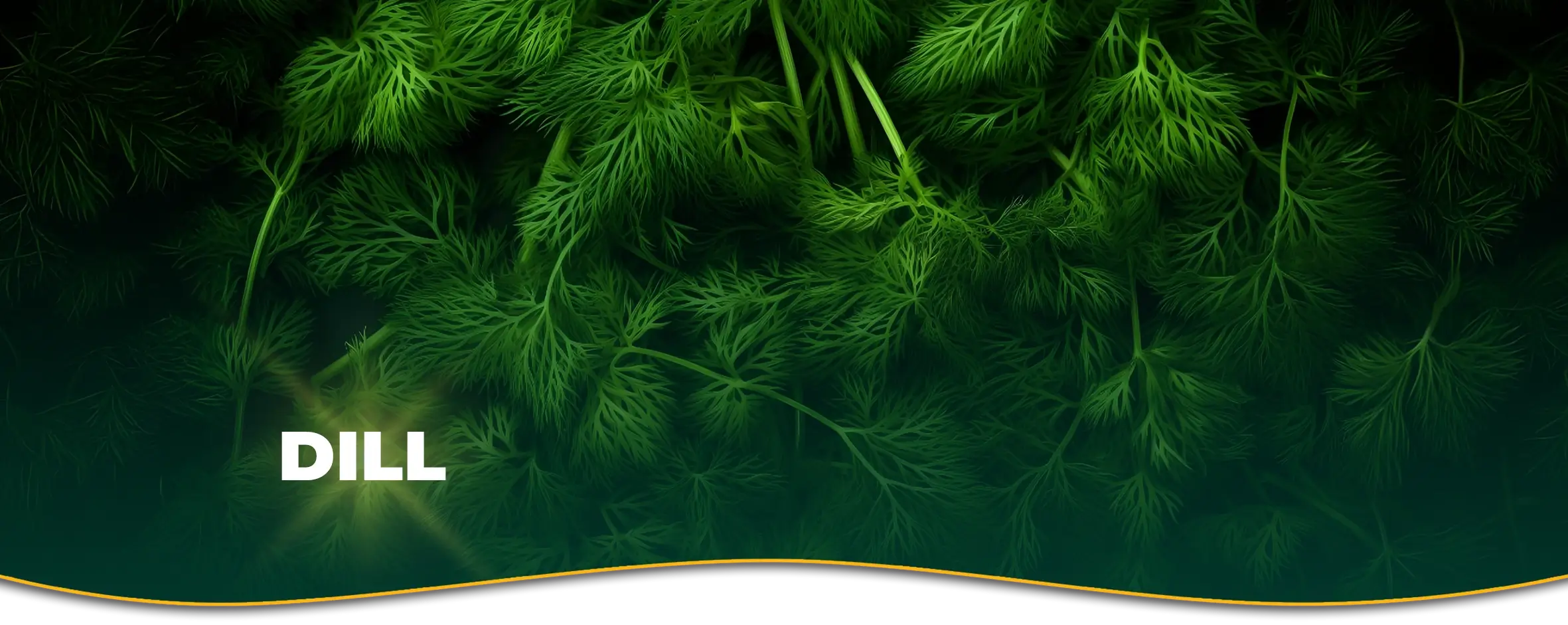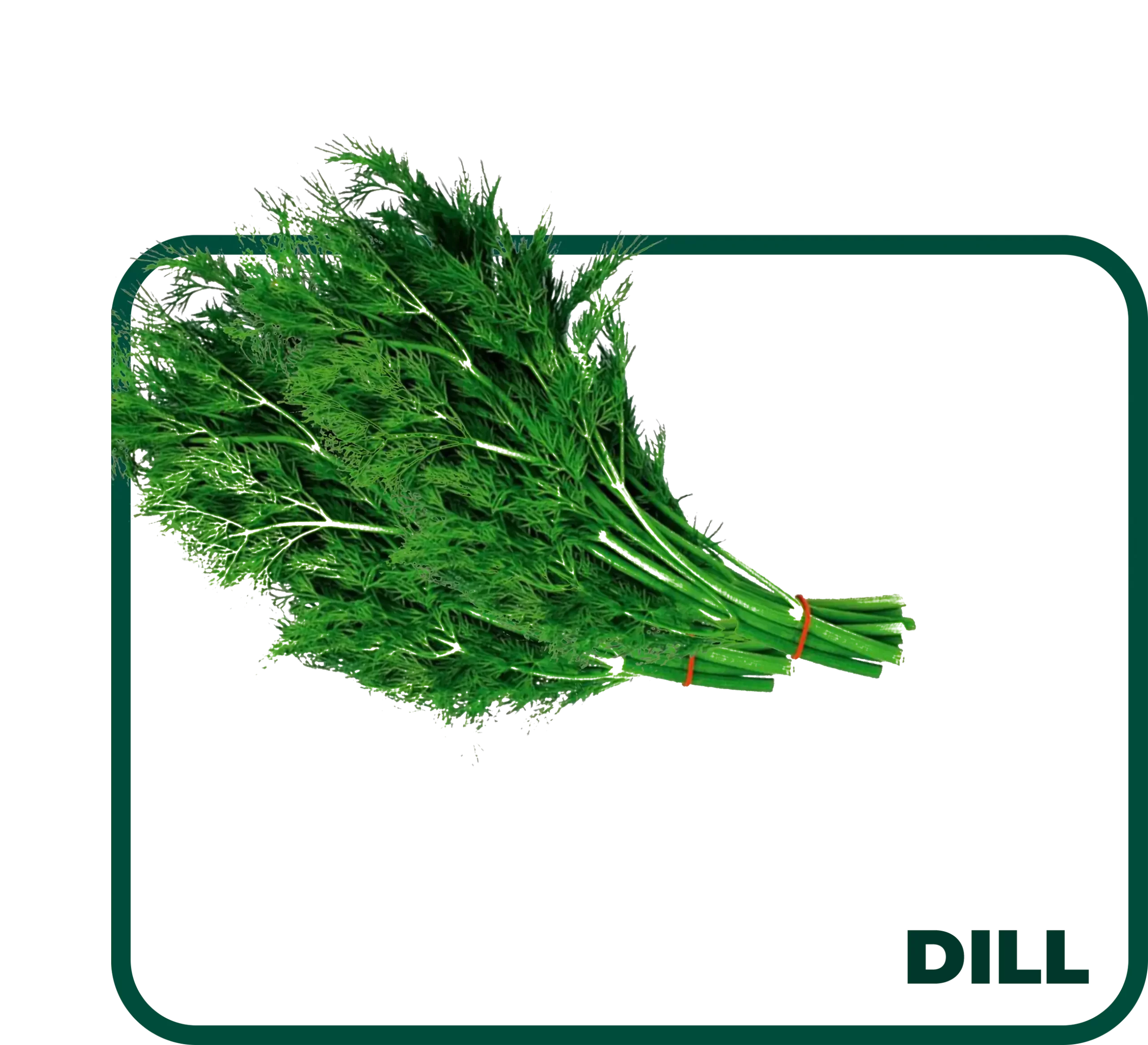
Dill
Egyptian dill is an aromatic herb known for its feathery, green leaves and distinct, slightly tangy flavor. Dill is commonly used in cooking to add a fresh, herbaceous taste to dishes such as salads, pickles, and fish. The seeds of the dill plant, known as dill seeds, have a warm, spicy flavor and are often used in pickling and spice blends.

Dill is a good source of vitamins A, C, and several B vitamins, as well as minerals like calcium, magnesium, and iron. It contains antioxidants and essential oils that may help reduce inflammation and support digestive health. Dill has traditionally been used to aid in digestion, alleviate symptoms of indigestion, and provide a calming effect on the digestive tract
Consuming Egyptian dill can support digestive health, provide antioxidant benefits, and enhance overall well-being. The vitamins and minerals in dill contribute to healthy skin, immune function, and bone health. The antioxidants and essential oils help protect against oxidative stress and inflammation, while dill’s digestive properties may alleviate discomfort and promote gut health
Red and yellow peppers are packed with essential nutrients, including high levels of vitamins A and C. Vitamin A supports healthy vision and skin, while vitamin C boosts the immune system and promotes wound healing. Both colors are rich in antioxidants, such as carotenoids and flavonoids, which help protect the body from oxidative stress and inflammation. Additionally, peppers provide dietary fiber, which aids in digestion and helps maintain a healthy weight.
